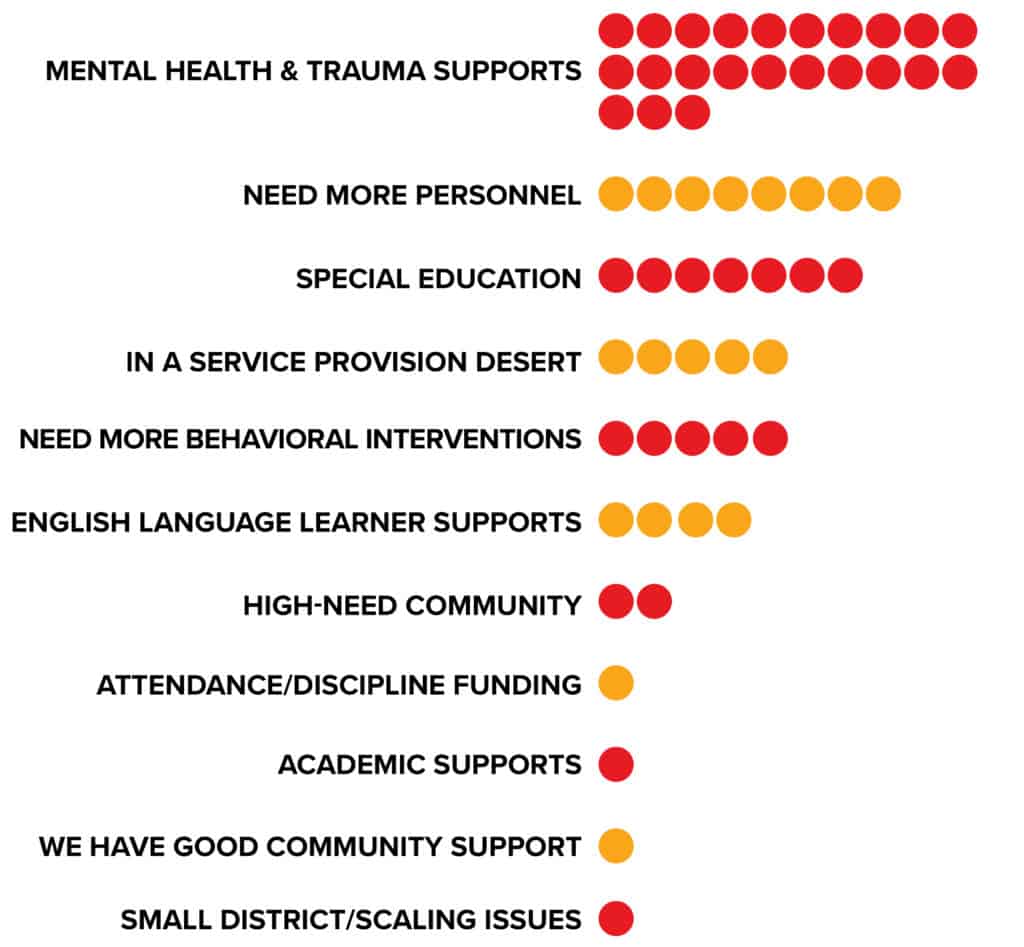By Angela Parker, League of Education Voters Policy Analyst
When an educator earns a superintendent position, they know their job description does not just put them between a rock and a hard place – they will be between a rock, a hard place, and a fire. They hold responsibility for the current education and future educational prospects of the children in their school district. Simultaneously, parents, community members, and their staff expect their leadership in translating and implementing statewide directives and policy changes. And, of course, the Office of the Superintendent of Public Instruction (OSPI) holds them accountable to agency and legislative directives and outcomes goals.
This is why most superintendents develop a refined skill set – the ability to collaborate with a wide range of community and education leaders, the passion to advocate for their students and communities on the state level, deep and broad engagement with education research, an engaging and thoughtful political persona, and long term project management and planning abilities. This is also why we knew we needed to gather as much feedback as possible from superintendents across the state, particularly on their understandings of current and emergent issues in our K-12 schools.
We sent a survey request in November 2017 to 295 superintendents in Washington; 57 (19%) returned our survey, giving these results an 80% confidence level with an 8% margin of error. Our survey over-represents districts with 500 to 4,999 students, and under-represents districts of 499 students and less. Respondents hail from all areas of the state, but disproportionately represent rural districts.
Aside from demographic details, our survey was limited to three main questions:
- How urgent are issues such as achievement/opportunity gaps, student supports, teacher supply, college readiness, etc., in your district?
- Is your district experiencing new or different educational issues?
- What should we work on in the next legislative session?
This post summarizes our broad findings from the survey, and we commit to working on these issues with superintendents and educators across Washington.
Urgency of Key Issues
Superintendents in our sample ranked funding inequity, the income-based achievement gap, adequate early childhood education options, and the need for integrated student supports as the most critical issues in their districts.
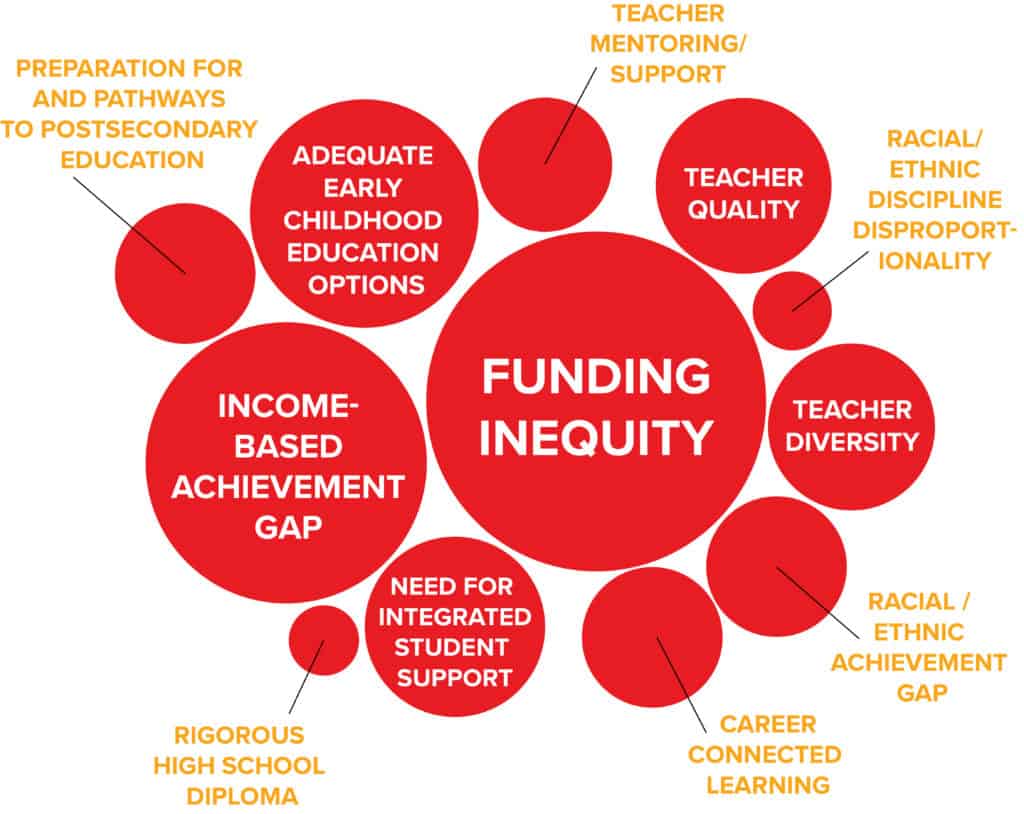
Emerging Issues
Funding
Superintendents overwhelmingly expressed concern or anxiety regarding the changes to come with the so-called McCleary fix (House Bill 2242). A distant, but substantial, second concern was Special Education funding and the inability of the prototypical school model to fully fund district needs. “Lack of equity, clarity and parameters are significant issues,” one superintendent stated. They continued, “As a property poor district we continue to have trouble attracting and keeping qualified teachers.”
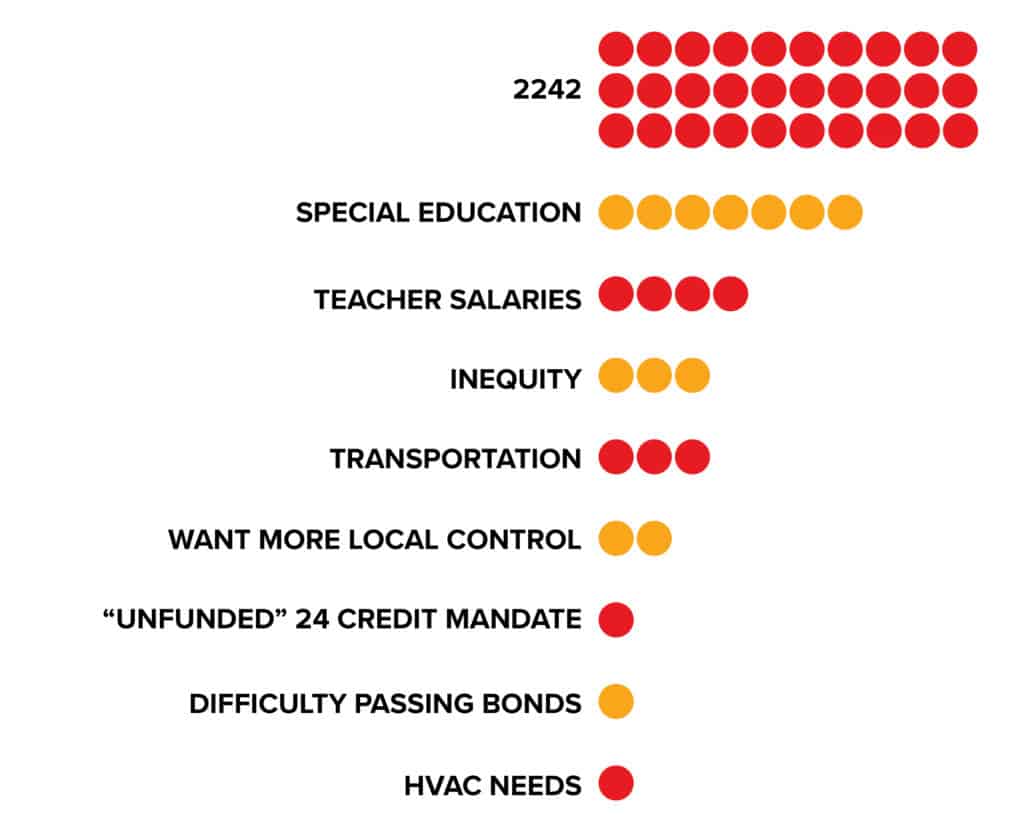
Facilities
Superintendent responses reflected their intersectional awareness of both local needs and state level priorities. Many saw overcrowding in their district buildings, were frustrated by the requirements to pass a bond, and given this context felt the pressure of meeting state-mandated K-3 class size reductions. As one superintendent told us, “Our district has aging facilities (80 year old building), and cannot expand classroom space to meet K-3 class size requirements.”
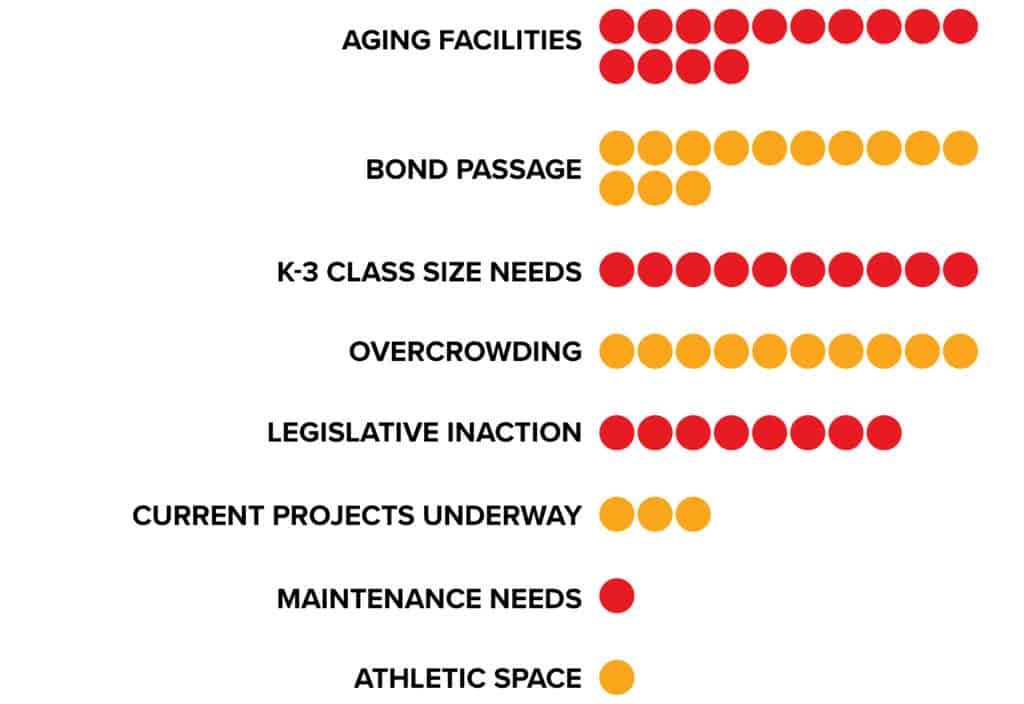
Student Supports
Many superintendents documented an increased need for student emotional health supports, including general social-emotional learning, training and resources for multi-tiered student supports, resources to implement wrap-around services, and mental health resources especially for students dealing with adverse childhood experiences (ACEs)/trauma. A superintendent stated, “Students are increasingly affected by mental health and trauma issues. We need more resources to help students and families.”
Instruction
Superintendent responses were evenly divided between concerns over teacher supply characteristics, the difficulty in recruitment and retention of teachers, and the need for further resources to support professional development. A second set of concerns clustered around accountability and funding for instructional staff. One respondent noted, “Mandates have created ongoing tension (Smarter Balanced Assessments, Testing Participation Rates, CCSS – Common Core State Standards, TPEP – the Teacher/Principal Evaluation Program, Certification, etc.).”
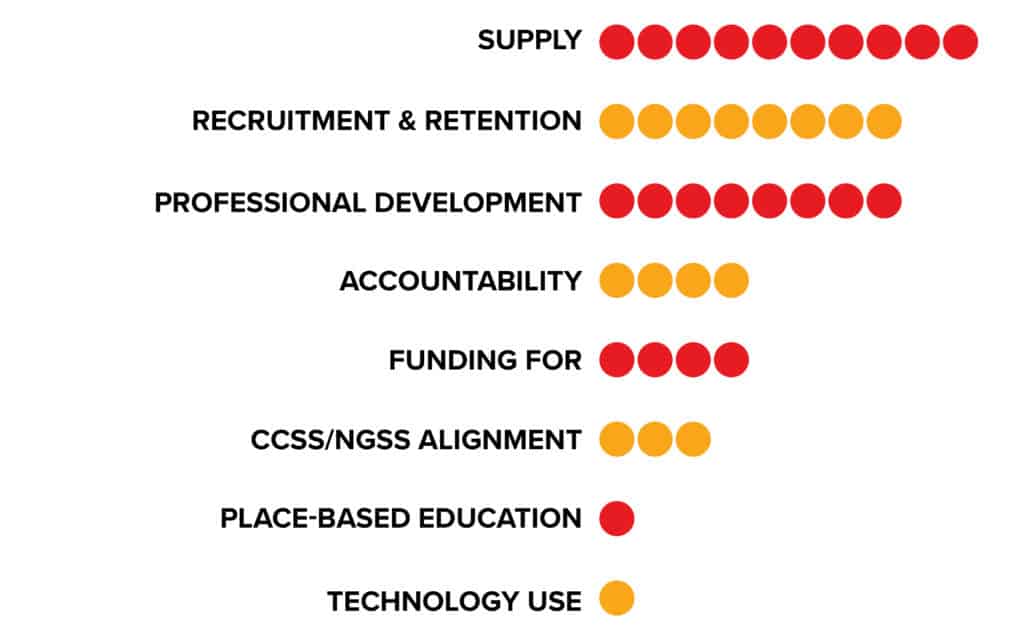
What Should League of Education Voters Work On?
Superintendents suggested a diverse set of priorities, but most focused on increasing or reforming funding structures, or addressing instructional shortages or quality. A consensus emerged around the idea that House Bill 2242 was not a “fix” for ample and equitable state funding in many areas. One superintendent asserted, “Inadequate funds for many mandates such as special education, employee sick leave, etc., are problematic—particularly as local levies become increasingly limited.” Another stated, “Removing barriers to certification and increasing alternate pathways to teacher certification, especially in special education and other hard-to-staff fields. Examining the number of reports and the filing that all districts are required to do … that make little common sense, take a ton of time, and have important implications for funding and compliance. Financial, HR, Enrollment, Food Service, Busing, and consider how to simply these and make it easier for school to get the information to the state that they need. Systems are antiquated and complicated when they don’t need to be. Streamline and modernize. Don’t make new initiatives. Think about reworking what we have that is not currently working well to make the law and policies work for kids, teachers, and schools.”
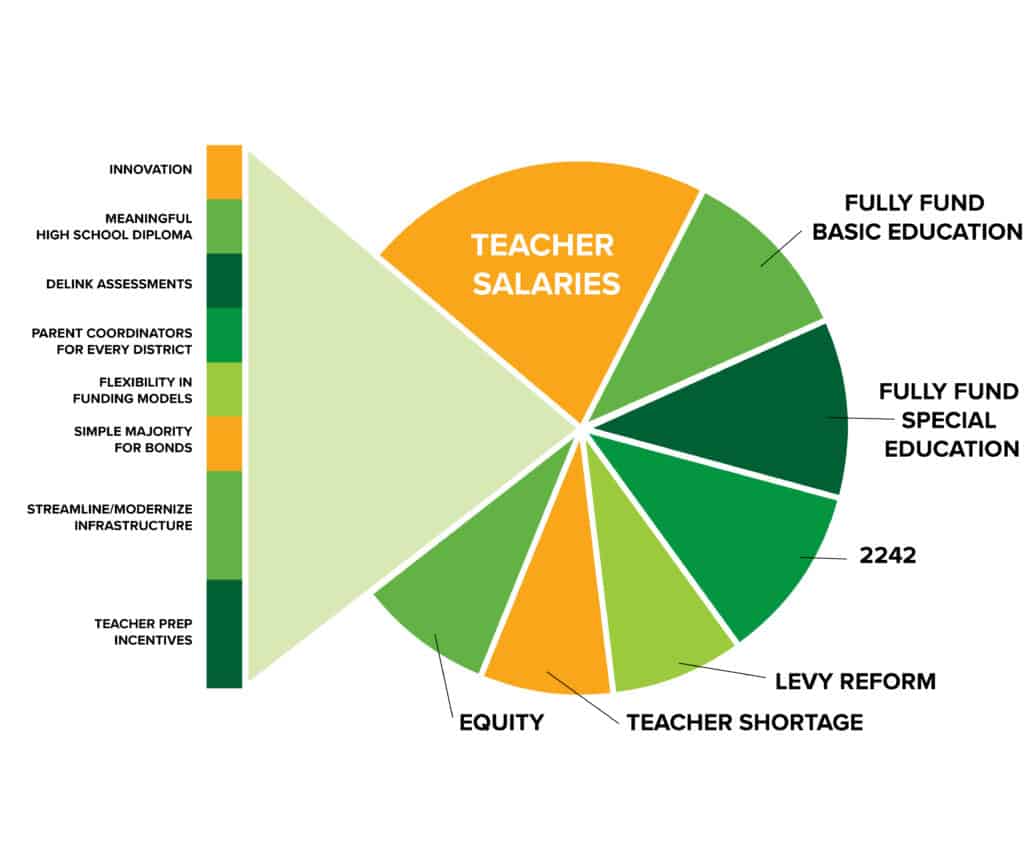
Thank you to the superintendents who participated in this year’s survey! We will use your feedback to help us craft our legislative agenda for the 2019 legislative session.
2018 Superintendent Survey (PDF)
Read our 2018 Principal Survey
Love what we do? Support our work
Want to find out the latest in education news in Washington? Subscribe to our newsletter
Want to learn more about League of Education Voters? Find out here
